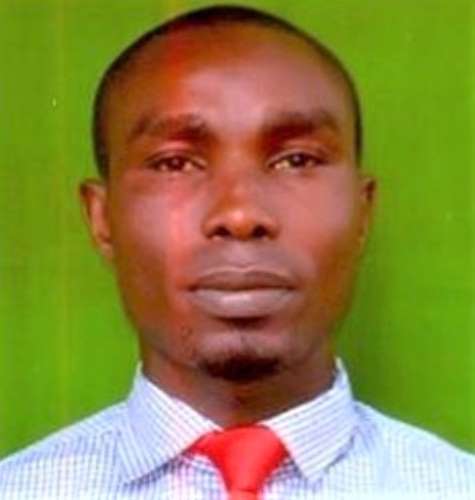Abdulfatai Olanrewaju, ANOFI
@unilorin.edu.ng
Lecturer, Faculty of Environmental Sciences
University of Ilorin
Abdulfatai Anofi is a Lecturer in the Department of Urban and Regional Planning, University of Ilorin, Kwara State, Nigeria. He holds a Bachelor of Science degree (2006) and Master of Science degree (2019) in Urban and Regional Planning from the University of Lagos. Before joining the university's services, he was the Group Town Planner at a real estate and development company, First World Communities Ltd. He rose and doubled as the Technical Assistant to the president between November 2012 and April 2018. Prior to his stint at the real estate firm, he was a Town Planning Officer at Adesanya Salako and Associates, a consulting town planning firm in Lagos, between March 2008 and October 2012. His research interests include urban informality, urban management, pro-poor planning, urban social support system, and environmental justice.
RESEARCH, TEACHING, or OTHER INTERESTS
Urban Studies, Geography, Planning and Development
Scopus Publications
Scholar Citations
Scholar h-index
Scopus Publications
Olalekan Tolulope B. Aduloju, Olumuyiwa Bayo Akinbamijo, Abdullateef Iyanda Bako, Abdulfatai Olanrewaju Anofi, and Kolade Victor Otokiti
Informa UK Limited
A. Iyanda Bako, O. Owoeye Idowu, O. Tolulope Aduloju, and A. Olanrewaju Anofi
Informa UK Limited
Olalekan Tolulope B. Aduloju, Abdullateef Iyanda Bako, and Abdulfatai Olanrewaju Anofi
Informa UK Limited
ABSTRACT COVID-19 pandemic has brought significant adverse impacts, in all ramifications, to the Nigerian society, especially in worsening the hunger situation resulting from the distortion of the urban food system. It has inhibited food choices and access for urban residents due to restrictions imposed on movement and human interactions. In Nigeria, the majority is in the informal economy who depend on the daily income for everyday needs, including food. This study, therefore, establishes specific knowledge links between COVID-19 and the urban food system. Also, it reviewed the impacts of adopted safety protocols and government policies during the COVID-19 pandemic on the Nigerian urban food supply system vis-a-vis state and non-state interventions to provide palliatives for the urban poor and vulnerable groups. The paper concluded that Nigeria has not adequately built a resilient strategy for eventualities, such as the COVID-19 emergency. Also, all measures instituted at different levels of government towards strengthening the urban food system during the pandemic were grossly inadequate as they could barely serve a fraction of the urban vulnerable. Therefore, the paper suggests a holistic policy review towards promoting resilience in the urban food system to withstand future emergencies.
A.I. Bako, O. T. B. Aduloju, A. O. Anofi, and K. V. Otokiti
Informa UK Limited
ABSTRACT This study assesses the spatial dimensions of social exclusion in the traditional core areas of Ilorin with specific emphases on the urban poor in Ilorin. For methodology, data collection instruments used include questionnaire administration, oral interview, personal observation for primary data; journals, reports for secondary data, respectively. The findings among others reveal that Agbarigidoma, Abimbola, Anifowose and Sheik Abdulquadri sectors in Oloje; as well as Abayawo, Kongbari, Sarumi and Sefura in Okelele were excluded from urban processes and operations based on a low income, poor housing condition, unemployment and lack of essential services. Furthermore, this study reveals that the study area is running at the risk of poor environmental sanitation, inadequate infrastructure and environmental degradation. Policy responses like proper budgetary allocation, citizen participation toward protecting human rights and strategies like the bottom-up approach were recommended as a way forward in coping and forestalling exclusion.
Abdullateef I. Bako, Olalekan Tolulope B. Aduloju, Dare J. Osewa, Abdulfatai O. Anofi, and Aisha T. Abubakar-Karma
Informa UK Limited
Abstract This paper demonstrates the application of Participatory Geographic Information System (PGIS) as a tool to present people’s local spatial knowledge of crime in the form of 2-dimensional maps. This study adopted a survey research design employing both primary and secondary data sources. Primary data were collected through the administration of 96 copies of questionnaires, and a Web-based PGIS map served as a data collection instrument to collect spatial information on crime occurrences in the study area. Secondary data were sourced from journals, reports and the Nigerian Police Force. Results show that Mokola is a poor residential neighborhood occupied mainly by self-employed and low-income business merchants. It also reveals that Mokola experiences 689 percent more crime than would be expected, given the distribution of crime in the study area. Also, crime hotspots such as Roundabout junction, Dandaru hill, Darlington street were identified by participants aiding knowledge of the crime pattern in the study area. This study recommends natural surveillance as a concept of Crime Prevention through Environmental Design (CPTED) to keep potential offenders under easy observation. In conclusion, this study offers a vital link between the police and the general populace, one that has been absent in times past.

